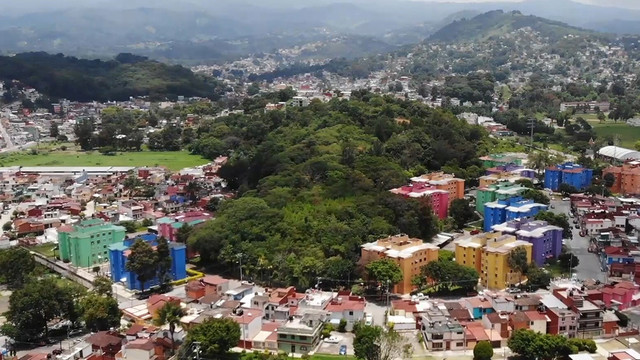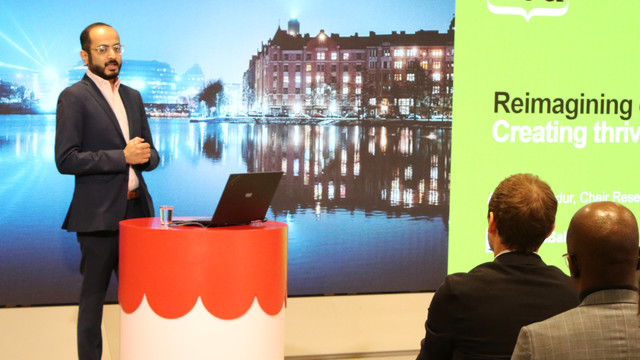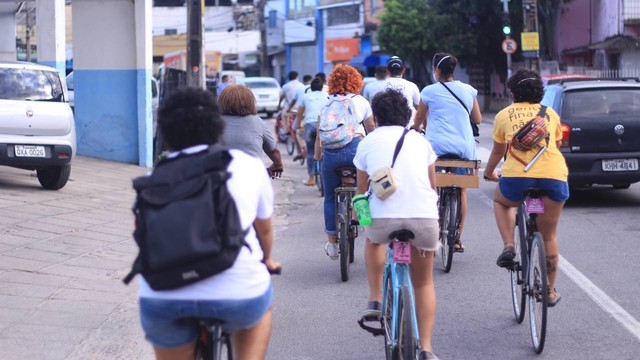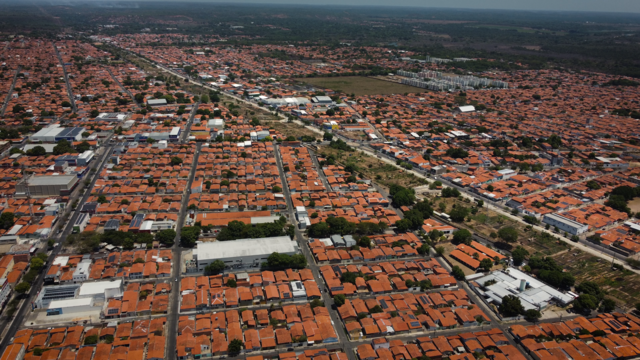Connecting decarbonisation and social justice in cities
Given cities’ significant carbon footprint and the urgency to accelerate decarbonisation, IIED is working with partners to dispel the myth that low-income urban communities have no role to play in generation-defining decisions around investments to achieve net zero in cities and tackle the triple challenge of climate change, poverty and loss of nature.

Aftermath of the hurricane Tomas in Port-au-Prince, Haiti (Photo: Dvids, via Flickr, CC BY 2.0)
The increasingly severe effects of climate breakdown – more frequent intense storms, heat, and flooding – disproportionately hurt the urban poor across the global North and South.
Consequently, much of the debate on climate justice in cities continues to focus on adaptation, with calls for wealthy countries and multilateral donors to increase and decentralise investments and aid for climate adaptation projects. But there has been less focus on aligning these efforts to tackle urban poverty and inequality with climate mitigation efforts at city level.
Decarbonisation requires massive investments in infrastructure and energy transitions. To be effective, this must benefit all urban residents, and represents an important opportunity to improve living and economic conditions of low-income residents.
One in seven people live in informal settlements globally: most without decent housing, sanitation, water or other basic services. Informal settlements have relatively low carbon footprints, and any infrastructural investments that include a focus on decarbonisation will enable these communities to bypass the carbon-intensive trajectories under way in other parts of the city.
Without planning and upgrading processes that involve local governments and low-income urban communities, mitigation investments in the built environment will exacerbate socioeconomic and environmental injustices in cities across the global South.
What is IIED doing?
IIED is working with new and long-standing partners to demonstrate how mitigation finance can be used to implement climate action and respond to local priorities, specifically improving equitable access to resilient basic services and housing for all.
In early 2023, IIED will convene a series of regional and global dialogues with key actors in urban development, social justice and climate action working across scale in the global North and South to:
- Co-create an action-orientated agenda that encourages the climate mitigation agenda to focus on building more just and equitable cities, and
- Identify emerging solutions in policy and development interventions that drive inclusive, equitable, zero-carbon cities.
Additional resources
Podcast: Can mitigation deliver better cities in the global South? Make Change Happen podcast episode 20 (December 2022)
Better cities are possible: responding to the twin crises of climate change and inequality, Anna Walnycki, Aditya Bahadur, Tucker Landesman (2022), IIED Toolkit
Blog: Can we reduce urban poverty and inequality and achieve net zero cities?, by Anna Walnycki and Tucker Landesman (October 2021)
News: New coalition to transform cities – and lives (May 2021)



